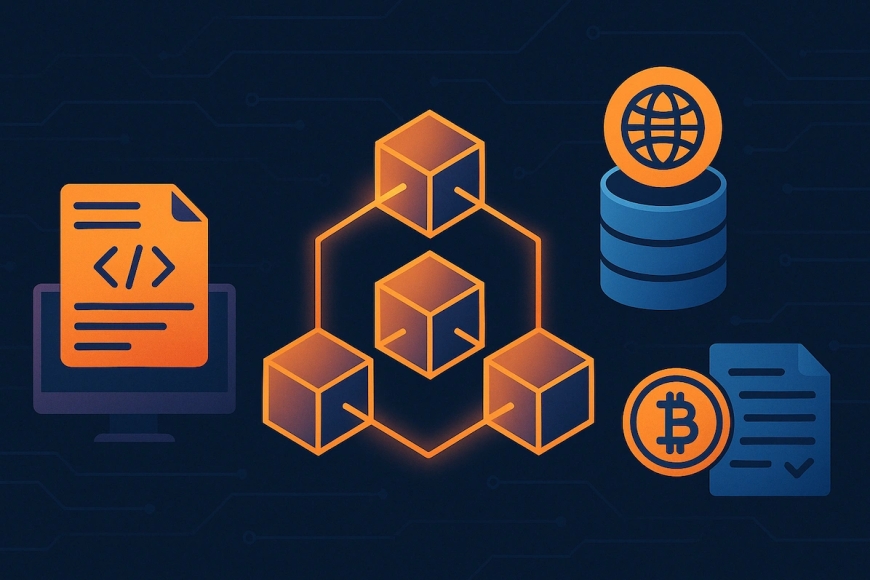How Can Startups Avoid Common Pitfalls in DeFAI Token Development?

The fusion of decentralized finance (DeFi) with artificial intelligence (AI), popularly termed DeFAI, is rapidly transforming the blockchain space. Startups entering this exciting niche face unprecedented opportunities but also a myriad of challenges. Developing a DeFAI token is not just about coding smart contracts; it involves a nuanced approach blending technology, tokenomics, legal compliance, community building, and marketing strategies. Understanding common pitfalls and learning how to avoid them is vital for any startup aiming to create a successful and sustainable DeFAI token project.
Understanding the DeFAI Landscape
Before diving into token development, startups must fully comprehend the DeFAI ecosystems unique nature. DeFAI tokens integrate AI functionalities, such as autonomous decision-making or predictive analytics, with decentralized finance protocols, allowing for smarter asset management, lending, or trading.
This hybrid model adds complexity beyond traditional DeFi tokens, demanding deep expertise in both AI algorithms and blockchain mechanics. Startups often underestimate this complexity, which can lead to rushed development and technical shortcomings.
It is crucial to recognize that DeFAI tokens not only represent digital assets but also embody AI-driven utilities that may affect token behavior, governance, and economic incentives. Startups must factor these dimensions into their strategy from the outset.
Designing Robust Tokenomics Tailored for DeFAI
Tokenomicsthe economic model governing a tokens supply, demand, distribution, and incentivesis arguably the backbone of any blockchain project. For DeFAI tokens, designing effective tokenomics is even more critical due to the AI components influence on token utility.
One common pitfall is adopting generic tokenomics frameworks without tailoring them to the DeFAI use case. This oversight can result in misaligned incentives, leading to poor user engagement or unsustainable token value.
Startups should carefully analyze how AI integration affects token demand. For example, if the AI component optimizes lending strategies, the tokenomics should reward participants who contribute data or computational resources that improve AI accuracy. Clear incentive mechanisms encourage active participation, which enhances the AIs effectiveness and, by extension, token value.
Moreover, supply mechanisms such as minting, burning, or vesting schedules must be designed to maintain token scarcity and avoid inflationary pressures that could erode investor confidence. Dynamic supply models tied to AI performance metrics can be innovative but require careful modeling to avoid unintended consequences.
Prioritizing Smart Contract Security and Audits
The smart contract code forms the foundation of any DeFAI token, managing transactions, governance, and AI interactions. Security vulnerabilities in smart contracts have been a persistent cause of DeFi failures, and the added complexity of AI integrations introduces new attack surfaces.
Startups frequently rush the development cycle or rely on insufficiently tested code, exposing their projects to hacks, exploits, or bugs that can lead to loss of funds or reputational damage. To mitigate these risks, rigorous security audits by reputable third-party firms are essential.
Beyond standard security checks, audits should specifically evaluate the AI components interaction with the blockchain. For example, how data inputs affect token functions or how AI-driven decisions are recorded on-chain. Transparent audit reports build investor and community trust, a crucial factor in the volatile crypto market.
Furthermore, implementing bug bounty programs post-launch encourages white-hat hackers to identify vulnerabilities early. Continuous monitoring and updating of smart contracts to patch vulnerabilities is necessary, as DeFAI systems often evolve rapidly.
Navigating Regulatory and Compliance Challenges
The regulatory landscape for cryptocurrencies and AI is still evolving globally, and DeFAI tokens often fall into a complex intersection of both domains. Startups must avoid the pitfall of overlooking legal compliance, which can lead to costly fines or project shutdowns.
Many jurisdictions classify tokens differentlyas securities, utility tokens, or commoditiesdepending on their functionality and offering. The AI-driven features of DeFAI tokens may complicate classification further, as regulators may view certain AI capabilities as financial advisory or automated trading services, attracting stricter regulations.
Engaging with legal experts early to understand the regulatory requirements in target markets is crucial. Startups should ensure compliance with Know Your Customer (KYC) and Anti-Money Laundering (AML) norms during token sales or exchanges. Transparent disclosure of token functionality and risks in whitepapers and marketing materials helps maintain regulatory goodwill.
Additionally, data privacy laws like GDPR in Europe impact how AI components process user data. Startups must build privacy-preserving mechanisms into their AI models to respect user consent and data security.
Building an Engaged and Transparent Community
A vibrant community is often the lifeblood of any successful DeFAI token project. Startups frequently falter by neglecting community-building efforts or lacking transparency, resulting in poor user adoption and low liquidity.
Since DeFAI tokens rely on user participation to feed data into AI algorithms or to provide governance feedback, fostering a loyal and engaged user base is non-negotiable. Communicating development updates, hosting AMAs, and involving the community in governance decisions can significantly increase user trust.
Transparency is equally important. Sharing insights on AI model performance, tokenomics adjustments, or partnerships helps demystify the projects complexity and builds long-term confidence. Projects that hide or overhype AI capabilities risk losing credibility when actual performance falls short.
Social media channels, dedicated forums, and Discord groups serve as vital hubs for community interaction. Startups should invest in professional community managers to nurture constructive conversations and swiftly address concerns.
Integrating Scalable and Interoperable Technologies
Scalability and interoperability are key technical challenges in the blockchain and AI space. Many startups fail to anticipate the infrastructure demands of a DeFAI token ecosystem, leading to performance bottlenecks or limited adoption.
DeFAI projects often require high throughput and low latency to process AI data streams and execute DeFi transactions efficiently. Choosing the right blockchain platform or layer-2 solutions that support such needs is critical.
For example, Ethereum remains popular but can suffer from high gas fees and congestion. Emerging rollup technologies or alternative blockchains with faster consensus mechanisms may offer better scalability.
Interoperabilitythe ability to interact with other blockchains or AI data providersalso enhances a DeFAI tokens utility and market reach. Projects that lock themselves into isolated environments limit their growth potential.
Startups should plan integration with widely-used DeFi protocols, NFT platforms, oracles, and AI data sources to build a robust and interconnected ecosystem. This requires adherence to common standards and APIs.
Managing Token Launch and Marketing Strategically
A token launch is a high-stakes event that can make or break a DeFAI startups future. Common mistakes include overhyping the token without a working product, poor timing, or inadequate marketing strategies.
Startups must align their token launch with a solid roadmap, ensuring that the AI functionalities and DeFi protocols are at least minimally viable. Delivering on promises early prevents investor disappointment and negative market sentiment.
Marketing for DeFAI tokens should focus on educating potential users about the AI benefits, the tokens unique value proposition, and real-world use cases. Overly technical jargon without clear user benefits alienates non-expert audiences.
Engaging influencers, participating in relevant blockchain and AI conferences, and leveraging content marketing such as blogs and webinars can build credibility. Social media platforms remain essential for generating buzz and maintaining continuous communication.
Moreover, startups should avoid aggressive pump-and-dump schemes or unsustainable token incentives that lead to short-term price spikes followed by crashes. Instead, transparent and ethical marketing fosters organic growth and sustainability.
Ensuring Continuous Innovation and Adaptability
The blockchain and AI sectors evolve rapidly, and startups must avoid complacency post-launch. Projects that fail to innovate or adapt to changing technologies and market needs risk obsolescence.
DeFAI tokens in particular require continuous updates as AI models improve and new DeFi protocols emerge. Startups should maintain a dedicated R&D team focused on integrating emerging AI techniques such as reinforcement learning or federated learning to enhance token functionality.
Community feedback loops can guide product improvements, helping startups pivot or enhance features based on real user needs.
Additionally, staying abreast of regulatory changes and adjusting compliance frameworks proactively safeguards the projects longevity.
Conclusion
Developing a successful DeFAI token requires far more than technical coding skills. Startups must navigate a complex web of tokenomics design, security, legal compliance, community engagement, scalable infrastructure, and marketing. Avoiding common pitfalls in these areas is essential to build a robust, trusted, and innovative DeFAI project.
By thoroughly understanding the unique challenges of DeFAI tokens and implementing best practices, startups can harness the power of AI and DeFi to revolutionize the blockchain space and create lasting value for users and investors alike.



























